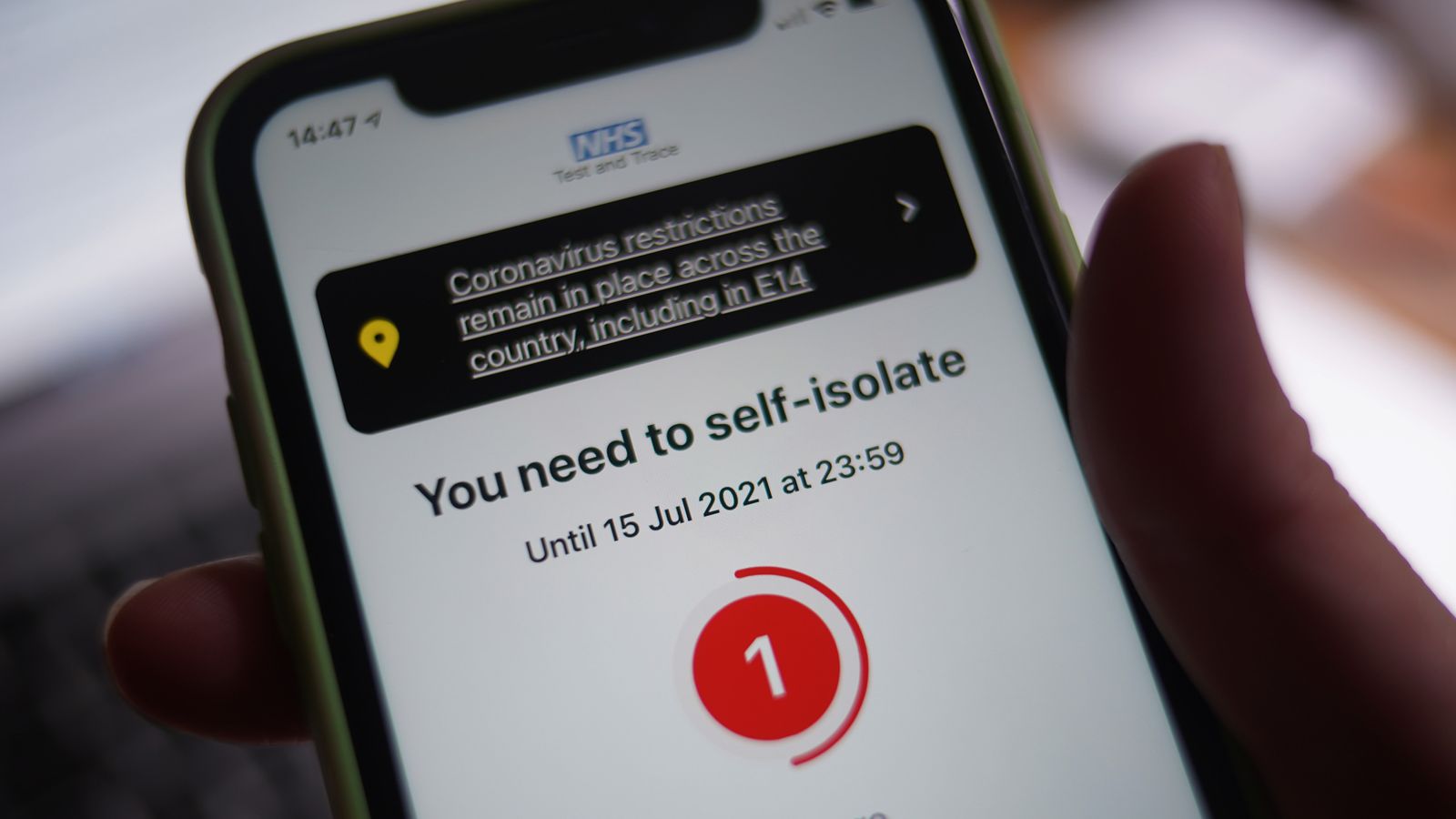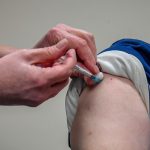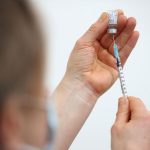People pinged by the NHS app in England and Wales are up to four times more likely to have coronavirus than someone who isn’t alerted, a survey suggests.
Those told to isolate had a 3.7 to 4.0 relative risk of testing positive, according to a survey of more than 750,000 contributors to the Zoe COVID symptom study.
In Scotland, it was even higher, and people pinged by the country’s app were 10 times more likely to have the virus.
The Protest Scotland app was also found to be more accurate at alerting positive-testing people than its Welsh and English equivalents.
The so-called “pingdemic” has caused problems in many industries as workers are forced to quarantine at home – but last week the number of alerts sent fell 20%.
From Monday, fully vaccinated people will no longer have to isolate when alerted by the app as a close contact of a COVID case.
Researchers also found only 2.4% of double-jabbed people who were pinged – but felt in normal health – went on to test positive.
In contrast, people in the same group who had at least one symptom were 11.7 times more likely to be infected.
The results of the study suggest a “large number” of people without COVID are being told to isolate by the apps.
:: Listen to the Daily podcast on Apple Podcasts, Google Podcasts, Spotify, Spreaker
Younger people who were alerted were also found to be more likely to test positive compared with older groups.
And unvaccinated people who were pinged were much more likely to have COVID than people with one or both jabs.
Professor Tim Spector, lead scientist of Zoe study, said the findings also show it’s important for people to remain wary and get tested if they feel unwell in anyway.
“While I welcome efforts to address the pingdemic, cases are still very high and our research shows that whatever your vaccination status, if you have one of possible 20-plus COVID symptoms recognised by Zoe – not just the classic three – you should be cautious, self-isolate and get a test,” he said.
“Which makes it even more important for the government to expand the symptom list to help people understand all the symptoms of COVID-19.
“This rapid analysis is proof that the Zoe COVID Study is in a unique position to gather data and continue to monitor the effectiveness of contact tracing apps.
“With access to nearly a million weekly contributors we can ask questions at a huge scale and get answers fast.”






















